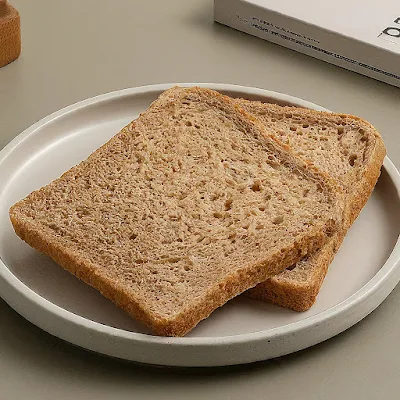Beyond the Fad: Building a Sustainable Eating Plan with Real Food Facts
The quest for a healthy diet can feel like navigating a minefield of conflicting information. Keto? Paleo? Low-carb? It's enough to make your head spin! But worry not, health-conscious readers! Today we're dispelling some of the most pervasive healthy eating myths to empower you with the knowledge you need to make informed choices.
Myth #1: Carbs Are the Enemy of Weight Loss :
Carbohydrates have been demonized in recent years, but they're actually a crucial source of energy for your body, particularly your brain and muscles. The key lies in selecting the right kind of carbs . Simple carbs found in sugary treats and processed foods cause blood sugar spikes and crashes, leaving you feeling tired and hungry.
Instead, focus on incorporating complex carbs like those in:
- Whole grains: Brown rice, quinoa, and whole-wheat bread provide sustained energy
- Fruits: Nature's candy, packed with vitamins, minerals, and fiber to keep you feeling satisfied
- Vegetables: Non-starchy vegetables like broccoli, carrots, and leafy greens provide essential nutrients without packing on the calories
Myth #2: Low-Fat Equals Healthy:
While reducing unhealthy fats like saturated and trans fats is important, healthy fats are an essential part of a balanced diet. They play a vital role in hormone production, nutrient absorption, and brain health. Here are some excellent sources of healthy fats :
- Avocados: A creamy and delicious source of monounsaturated fat
- Nuts and seeds: Almonds, walnuts, chia seeds, and flaxseeds are powerhouses of healthy fats, protein, and fiber.
- Olive oil : A heart-healthy fat that's perfect for drizzling on salads or using in cooking
Building a Sustainable and Informed Approach to Eating
Instead of falling prey to restrictive diets and fads, focus on cultivating a healthy relationship with food. Here are some tips:
- Practice mindful eating: Pay attention to your hunger and fullness cues. Don't eat when you're bored or stressed.
- Savor your food: Enjoy the flavours and textures of your meals. Slow down and appreciate each bite.
- Embrace home cooking: This gives you complete control over the ingredients in your meals.
- Allow yourself occasional treats: Deprivation can lead to overeating later. Enjoy your favourite foods in moderation.
By debunking these common myths and developing a healthy relationship with food, you can create a sustainable meal plan that nourishes your body and fuels your wellness journey! Remember, the best diet for you is the one you can stick with in the long term. Focus on developing healthy habits that fit your lifestyle and preferences. Happy eating! check your fittness kit by clicking the link below https://www.mylo.id/account/brands/goodhousekeeping?client_id=6l4fkr0k2en3n3pjmuu7kfl6o3&logout_uri=https%3A%2F%2Fwww.goodhousekeeping.com%2Fauth%2Flogout&state=6Yg56IO0-E_-NyZ9qGwSK18TJjaVGTHYHHjY






Comments